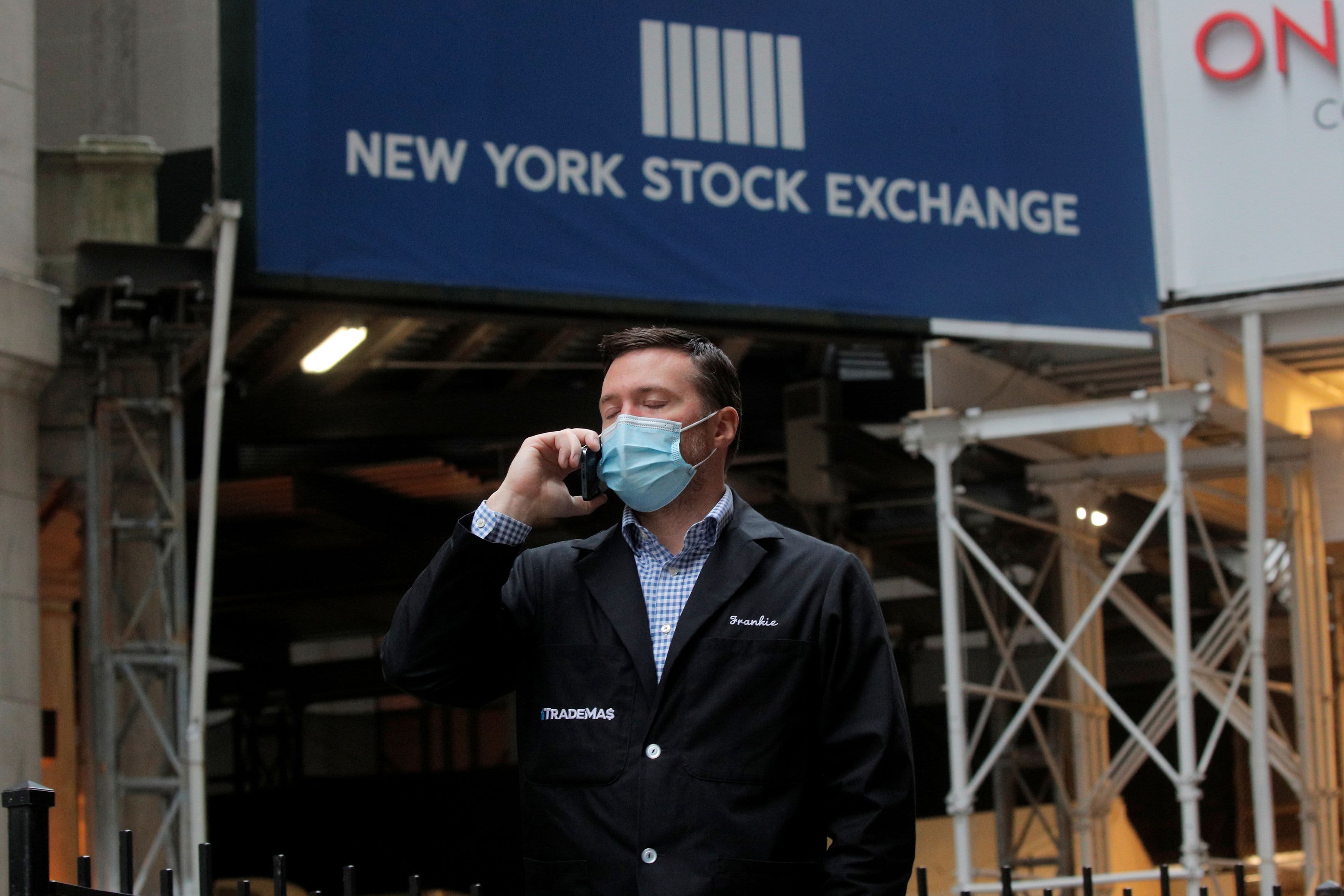
U.S. stock index futures declined in overnight trading as a surge in speculative trading by retail traders continued to cause hedge funds to take off risk and worried investors about a market bubble. The losses build on last week's decline, which was the worst for the market since October.
Futures contracts tied to the Dow Jones Industrial Average declined 183 points, indicating a 185-point loss at the opening bell. S&P 500 futures slipped 0.8%, while Nasdaq 100 futures fell 0.9%.
Tobias Levkovich, Citigroup's chief U.S. equity strategist, believes the market's valuation is stretched and that the recent turmoil sparked by retail traders is the kind of thing that could spark the start of a correction from these overvalued levels.
"We think that the vulnerabilities are there, and while we do not know precisely which catalysts might emerge or their exact timing (including some of the recent retail-oriented pushes against heavily shorted stocks), we suspect that they would derail the current rally and provide entry points that may be 10% lower," he wrote in a note to clients.
The Dow dropped 620 points on Friday, or 2%, to close below the 30,000 level for the first time since December. The Nasdaq Composite also slipped 2%, while the S&P 500 fell 1.9%.
For the week, all three major averages slipped more than 3% for their worst weekly performance since October. The Dow and S&P also posted losses for January — the first negative month in four — although the Nasdaq did manage to post a gain for the month.
Friday's dip came amid a frenzy of activity by retail investors in heavily-shorted stocks including GameStop and AMC Entertainment, which fueled concerns about the overall health of the market. Goldman Sachs noted that the current short squeeze is the worst in 25 years.
"This week's events may have turned markets on their heads, but fear indicators imply that we may have seen the worst of the degrossing," Jefferies wrote in a note to clients over the weekend. Barclays added that it's unlikely that the impact of the short squeezes will ripple through the broader market.
"The ongoing short squeeze in a few stocks by retail investors has raised concerns of a broader contagion," the firm wrote in a recent note to clients. "While we believe there is more pain to come we remain optimistic that it is likely to remain localized."
Meanwhile, a group of 10 Republican senators sent President Joe Biden a letter on Sunday, urging him to consider a smaller, scaled down Covid-19 relief proposal. His current plans calls for $1.9 trillion in additional fiscal stimulus. The alternative proposal comes after House Speaker Nancy Pelosi said the chamber will move to pass a budget resolution, the first step toward approving legislation through reconciliation. The process would enable Senate Democrats to approve an aid measure without GOP votes.
Elsewhere, another busy week of earnings is coming up with 99 S&P companies set to report. Alphabet, Amazon, Alibaba, Snap, Exxon, Biogen, Pfizer and Chipotle are among the names set to report this coming week. Thursday is the busiest day of the earnings season.
"We believe the medium-term path for the market remains higher," noted Mark Haefele, global CIO at UBS Wealth Management. "In a similar pattern to the previous two quarters, corporate earnings for 4Q20 are exceeding expectations by a significant margin."
He added that a stimulus package as well as investors looking beyond delays to vaccine production and distribution should further boost stocks.
- CNBC's Jacob Pramuk contributed reporting.
Subscribe to CNBC PRO for exclusive insights and analysis, and live business day programming from around the world.
Business - Latest - Google News
February 01, 2021 at 06:03AM
https://ift.tt/3tnWQZY
Dow futures drop 200 points, building on losses after worst week since October - CNBC
Business - Latest - Google News
https://ift.tt/2Rx7A4Y
Bagikan Berita Ini














0 Response to "Dow futures drop 200 points, building on losses after worst week since October - CNBC"
Post a Comment